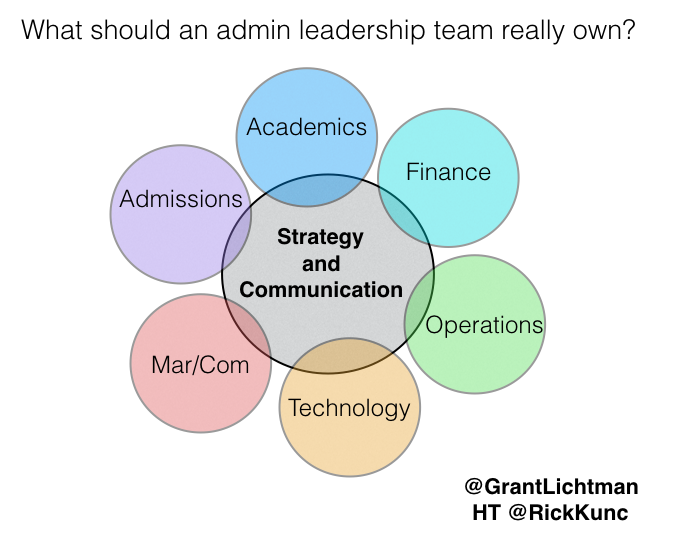Bo Adams, in his incredible blog series 60-60-60 refers to the idea of The Ten Commandments and asks:
Wouldn’t it be interesting to engage in a faculty exercise of recording ten such expectations, one each on a Post-it note, and affinity mapping the commonality and differences among a school’s tribe of practitioners? Shouldn’t we have some level of agreement about the ten most fundamental expectations for schooling in our modern era? Do we?
Bo’s suggestion takes deliberation and decision about essential qualities of a graduate from the realm of the theoretical to the operational. How are we going to entrain these common understandings in our day-to-day interactions with students? Are these essential qualities something that stays on the shelf or in the five-year strategic plan, or do we write them down, organize them into operational statements, and craft them into a series of “commandments” or agreements? If we do as Bo suggests, all members of a school will know they intentionally participated in a highly democratic, interactive, participatory crafting of the main drivers of a re-imagined learning experience.
Everything we know about innovation implementation screams that we must move from the theoretical to the operational: imagining, designing, testing, piloting, failing, tweaking. And we have to do this in shorter time frames and on a more continuous basis than schools are used to. Five-year strategic plan cycles are way too long, but more importantly, the process of planning every few years is flawed. Innovation process is ongoing; it needs to become embedded in every-day DNA, and at multiple levels of institutional organization. We have to flatten organizational structures, distribute authority and responsibility for innovative thinking, and celebrate implementation on a scale that is radically different from our traditional planning and adoption processes.




Leave A Comment